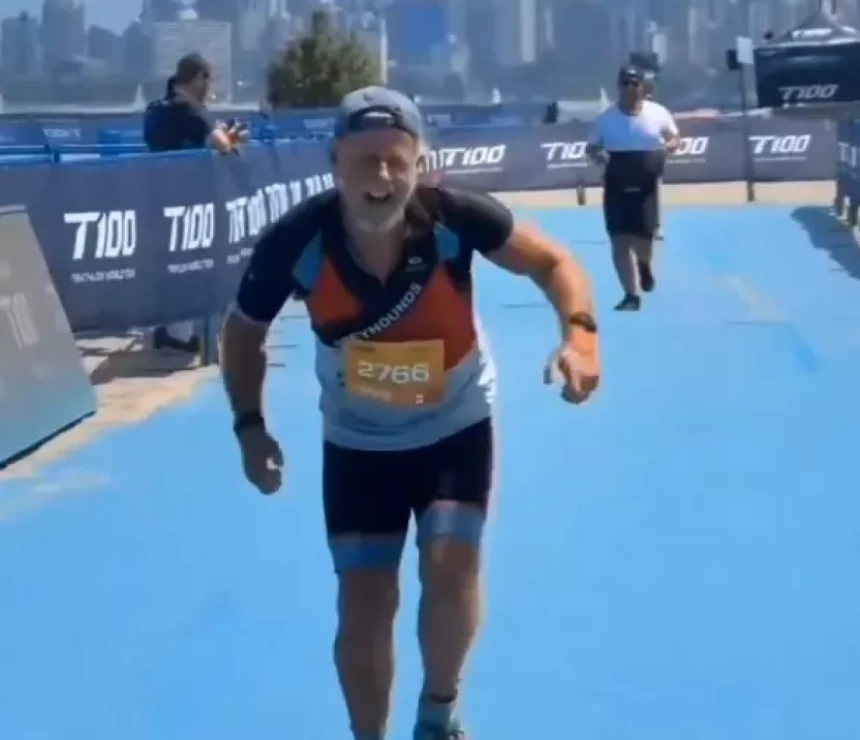15 Bucket List Marathons Every Runner Should Do in 2026
Discover 15 of the world’s most epic marathons scheduled for 2026 flat, fast, scenic, and packed with camaraderie. Set your sights on these bucket-list races and plan your next adventure!
At 75 and living with Parkinson’s, David Walker just finished a full triathlon, proving age and illness shouldn't stop you from achieving greatness. His story will inspire you.

At 75 years old and living with Parkinson's disease, David Walker has just completed a full triathlon, delivering an inspiring lesson in resilience and determination. His remarkable achievement sends a powerful message of hope to millions facing the challenges of aging and neurodegenerative diseases, proving that neither age nor illness should dictate what we can accomplish.
David Walker’s accomplishment is especially striking when considering the additional hurdles faced by people diagnosed with Parkinson’s later in life. Parkinson’s disease affects over 10 million people globally and results from the loss of dopamine-producing brain cells, significantly impacting movement and mood.
To truly appreciate David’s feat, it helps to understand how endurance typically evolves with age.
Athletic performance generally peaks between ages 35-40, gradually declines through 50, and experiences a significant drop after 70. Add to this natural decline the burden of a neurodegenerative illness, and Walker’s achievement becomes even more extraordinary.
Recent medical research highlights impressive benefits from physical activity in managing Parkinson's.
According to Martin Langeskov-Christensen, a physiologist at Aarhus University, exercise tackles both motor and non-motor symptoms effectively.
Physical activity can notably improve coordination, balance, gait, and even reduce falls issues that medications often struggle to manage fully.
Exercise also improves non-motor symptoms such as mood swings, fatigue, sleep disturbances, and digestive issues. Dr. Rebecca Gilbert from the American Parkinson
Disease Association emphasizes that even simple routines, like a short walk after meals, can make significant improvements in daily comfort.
Excitingly, recent studies indicate that aerobic exercise at high intensity can offer even more profound benefits.
Brain imaging research has revealed increased dopamine levels in participants after six months of aerobic workouts, according to Langeskov-Christensen.
One study focused specifically on Parkinson’s patients exercising intensely on treadmills during the early stages of their diagnosis (within five years).
Results showed slower symptom progression for participants performing 30 minutes at 80-85% of their maximum heart rate four times weekly.
Triathlons uniquely benefit seniors due to their multimodal nature combining swimming, cycling, and running.
Training for these varied activities aligns perfectly with medical recommendations for Parkinson’s patients. Aerobic exercise generally surpasses resistance training in effectiveness, but experts agree any exercise type can still yield substantial health benefits.
David Walker is not alone. Senior athletes are rapidly increasing their participation in endurance sports.
For instance, the upper age categories at Olympic triathlon races at Guelph Lake, Ontario, have shifted significantly over 15 years.
Women’s categories have expanded from 60+ in 2003 to 70-74 today, with men’s categories similarly evolving up to 75-79 years old.
Roger Barker, another 75-year-old triathlete, recently announced his retirement from Ironman competitions, underscoring that sustained high-level performance beyond age 70 is entirely achievable.
How do these older athletes achieve such incredible feats? Specialists point to several crucial factors.
Coach Pace emphasizes the importance of strength training, describing it as the "fountain of youth" for older athletes.
Since aging bodies require twice the effort to maintain performance, incorporating resistance training helps overcome challenges like chronic joint pain, significantly boosting athletic longevity.
One 76-year-old triathlete advises seniors to gradually adjust performance expectations each year after turning 70.
Without these adjustments, maintaining fitness and enjoying sports into your 80s and 90s becomes challenging. Walker’s achievement is a prime example of balancing ambition and realism effectively.
Studies on senior triathletes provide compelling evidence of our ability to maintain high performance into advanced age.
Anecdotal data even highlights cases like an 80-year-old man who completed the grueling Hawaii Ironman in 2010 in less than 16 hours.
These remarkable athletes illustrate healthy aging and offer unique insights into preserving physical performance and physiological function at older ages.
Scientifically speaking, exercise addresses Parkinson's on multiple levels.
Physical activity in animal models of Parkinson's induces brain neurotrophic factors such as BDNF (Brain-Derived Neurotrophic Factor) and GDNF (Glial cell line-Derived Neurotrophic Factor), offering protective effects.
Exercise also enhances the proliferation and migration of neural progenitor cells and reverses age-related declines in brain vascularization, particularly within the substantia nigra, the region most affected by Parkinson's.
David Walker’s story transcends athletics, serving as a potent reminder that physical activity should be encouraged for all Parkinson’s patients.
His example demonstrates that it's never too late to defy perceived limitations.
Current research strongly supports exercise as a promising, cost-effective, and low-risk method to enhance the quality of life for Parkinson's sufferers.
David Walker teaches us three invaluable lessons:
Completing his triathlon stands as a profound victory against resignation.
In a culture often equating aging with decline, Walker reminds us that each pedal stroke, stride, and swimming stroke symbolizes a powerful act of resistance against the limitations of age and illness.
Start your running journey today!
No spam. Cancel anytime.